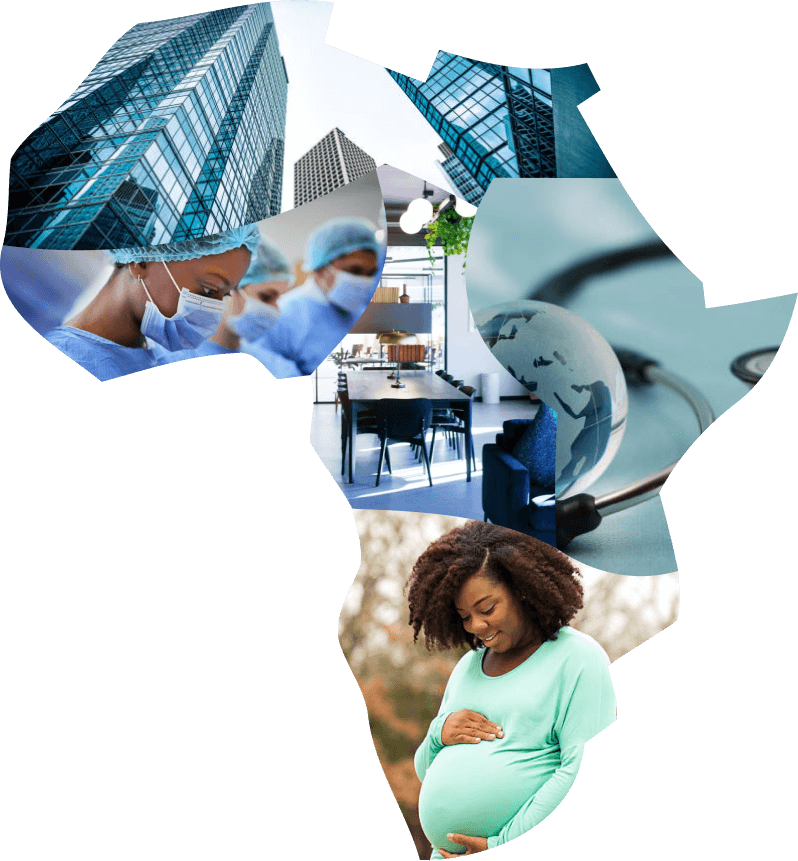Following the rampage COVID-19 is wrecking on Africa’s economy, it should only make sense for everyone to be focused on one thing – closing the gaps in Africa’s health infrastructure deficit. The continent’s response to the virus compared to how other continents responded – Asia, Australia, North America and Europe acted in accordance to the level of trust in their healthcare system, considering that most did not take any aggressive response until it became clear that their health infrastructure was being overwhelmed while Africa, along with most of the other developing world, really had no choice in the matter as locking down became a matter of subsistence majorly because of the frailty of its health infrastructure.
In short order, we become spectators to the trading off of our respective economies in order to stave off the virus and survive. The looming question history will force an answer to from us being ‘did it work?’; and a more pertinent one; ‘how did we get here?’
In 2019, the United Nations Economic Commission for Africa (UNECA) released a report simultaneously with the launch of a movement designed to tackle Africa’s health challenges. This report – Healthcare and Economic Growth in Africa – made the relationship between health and wealth evidently clearly, stating that if the continent would prosper, the health of its 1.3 billion strong population would have to be taken more seriously. More significantly, the report highlighted several critical issues that must be resolved to improve the continent’s health outcomes chief being closing the health infrastructure gap.
The advent of COVID-19 proves them right.
It would not be far-fetched to say that the Continent’s economy is taking a beating; one that started even before the first case of an infection was reported on the continent. What began as forced lock down in China quickly spread across continents effectively shorting oil demand, travel, tourism and financial markets. While the developed worlds could fall back on their reserves to provide welfare support and to give businesses a much needed lifeline, much of the developing world faced economic ruin as revenue plunged. In Africa, the forecast has been for economic growth to drop from 3.2% to 1.8% while fiscal deficits were calculated to be in the negative for most of the continent’s fifty-four countries.
Consider the current situation of just two of the continent’s biggest revenue-earning industries – oil and tourism. Africa’s top exporters of fuel have already taken a hit as global oil prices plunge to historic lows in mid-April and experts predict worse projecting losses between 20% and 30% of its fiscal revenue.

Tourism, which employs about ten million Africans has also taken a big hit with projections of losses in the range of USD50b and at least two million jobs; the effects of a global travel restrictions that have grounded airlines, shuttered hotels and reduced revenues for tourist-dependent sites.
With such significant drop in earning power, many African countries will have to brace for tough times ahead, specifically nations who are export-dependent.
The figures however show that it will not be all gloom and doom as recent successes indicate. Over the course of a decade, governments in Africa have overseen significant improvements in the health sector to the extent that life expectancy rose across the continent as indicated in the illustration below:

There is notable improvement that dictates, along with the pandemic, an economy of necessity where the healthcare sector is given the highest level of priority. Experts across board agree on this and have begun advocating for governments to take urgent action to close the over USD60b financing gap in the continent’s health sector and to take strong steps to tackle the seemingly intractable challenges ranging from inadequate human resources, poor resource allocation, poor maintenance of healthcare infrastructure and lack of political will.
Over time, commitments to improve the continent’s health have been with mixed platitudes that contribute to the misfortune that the same issues that affected the sector three decades ago remain the same issues affecting it today but with a major difference – the resources that could have fixed the problem thirty years ago has become microscopic to the resources needed to solve the current pandemic of today that Covid-19 poses, and hereafter, hanging on to the feeble belief that after this one – Africa will be free of such for another decade or so.






